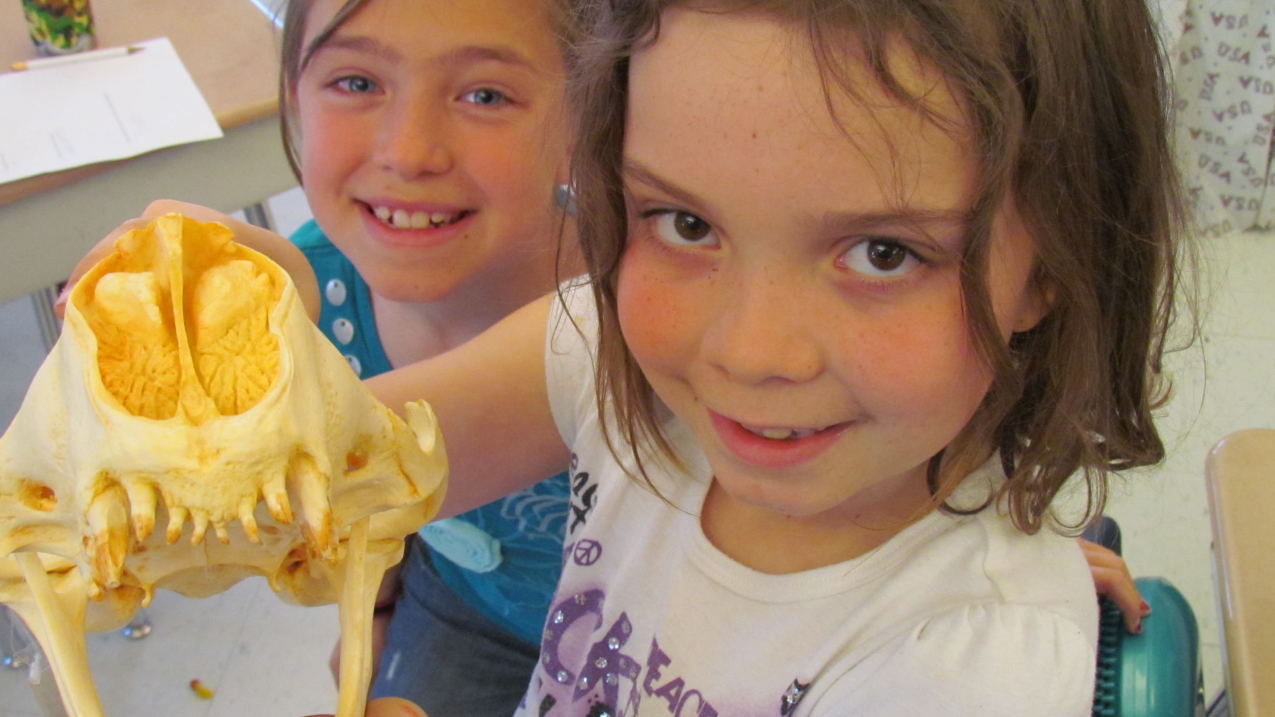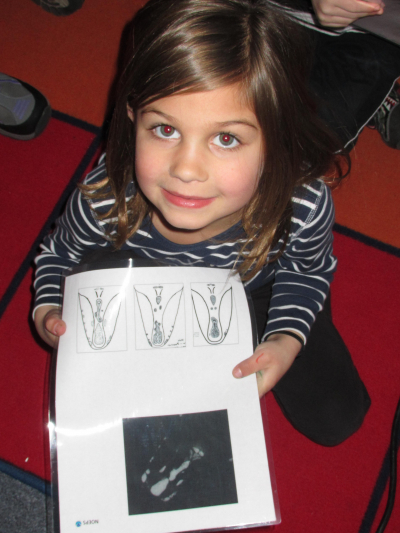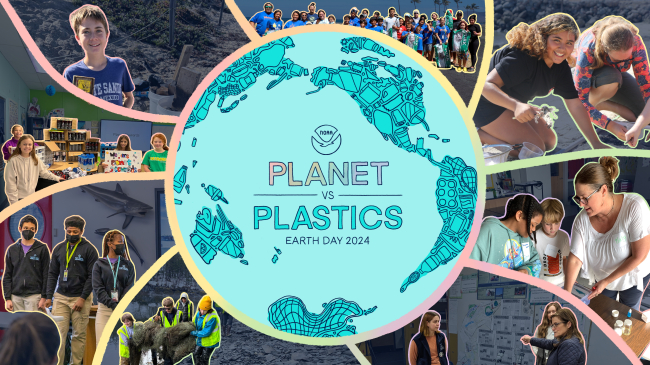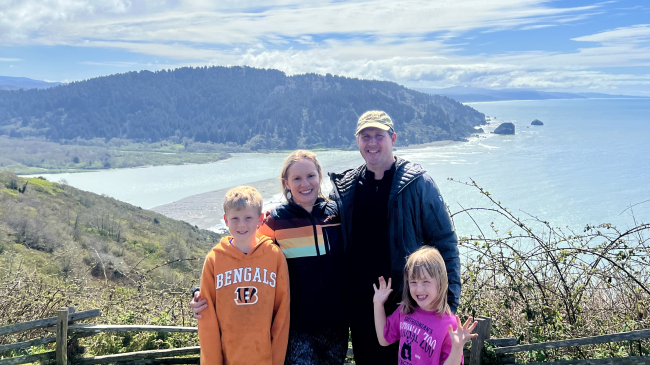New England has a rich maritime tradition, with the livelihood and leisure activities of many residents associated with the ocean in some way. The NOAA Outreach and Education on Protected Species (NOEPS) program strives to build connections between NOAA Fisheries science and local communities, enriching and supplementing the current science program. In order to achieve a significant impact in nearby small communities, the NOEPS program targeted all K-4th grade classrooms in the Falmouth Public School District.

Two students learn about a seal skull during a NOAA Outreach and Education on Protected Species Program presentation. (Image credit: Grace Simpkins/NOAA)
In its third year, NOEPS gave classroom presentations to 10 schools in the New England area. The program, based out of NOAA Fisheries’ Northeast Fisheries Science Center (NEFSC) in Woods Hole, Massachusetts, reached 1,790 students in 95 classrooms from preschool to high school in the 2015-16 school year. Educators had expressed a need for hand-on activities to engage students so the Northeast Fisheries Science Center designed a program to enrich and supplement the current science program as well as bring in marine science at the elementary level. Presentations focused on key marine mammal species and research conducted by NEFSC scientists, offering free one-hour lessons with hands-on activities, presentations, and projects on marine mammals for K-6 classrooms, and emphasizing the conservation and stewardship goals behind the science. In 2015-16, the program expanded to include K-3 classes in the Mashpee School District. In addition, NOEPS lessons and core educational materials are available for download by teachers.
1,790 students
in the Woods Hole area participated in the NOAA Outreach and Education on Protected Species program.

The program reached a more general audience in addition to targeting educators. Through outreach events such as the Northeast Fisheries Science Center Open House and the Southern New England Right Whale Festival, as well as partnering with NOAA’s Stellwagen Bank National Marine Sanctuary to present a “Whales in Our Backyard” event, NOEPS staff reached more than 2,800 people during the 2016-17 school year. At a national level, the program partnered with NOAA's Teacher At Sea program to present educational resources at the 2016 National Science Teachers' Association National Conference. NOEPS and Northeast Fisheries Science Center staff have also collaborated with Teacher At Sea alumni on an annual Ocean Day event, currently in its third year. NOEPS staff actively foster relationships between educators and local scientists.
The NOEPS program is a model for how NOAA can make a substantial impact in a small community. By reaching all students in grades K-4 in the Falmouth Public School District and in grades K-3 in the Mashpee School District, NOEPS has contributed to a positive view of NOAA and its work, as well as raising awareness in students about marine life and conservation issues. In a community where many students have parents that in some way use the ocean recreationally or professionally, promoting the conservation of marine living resources can plant the seeds of lifelong stewardship of the environment.
This story was provided by NOAA Fisheries, a member of the NOAA Education Council, as part of our ongoing effort to share education accomplishments from across NOAA.



